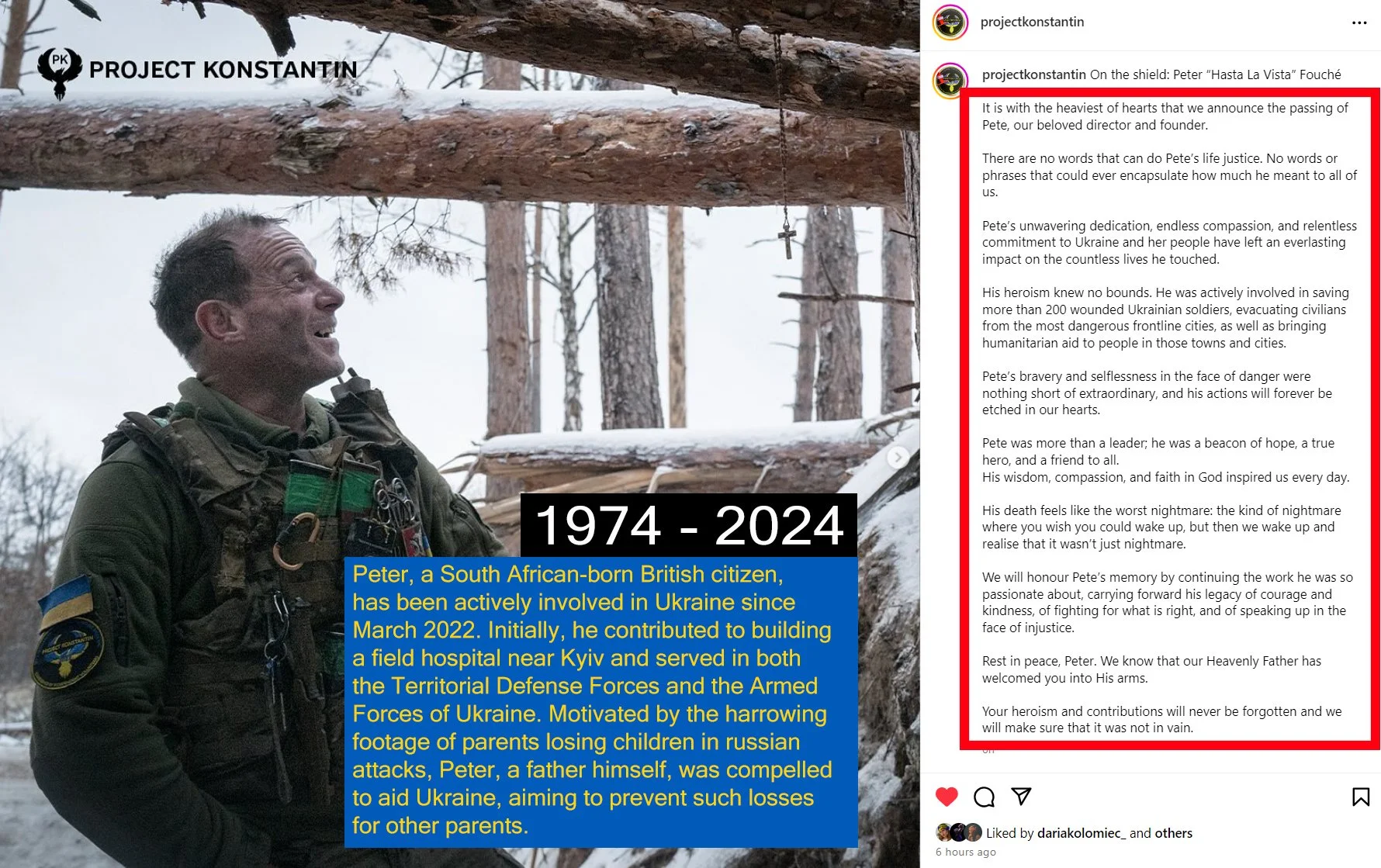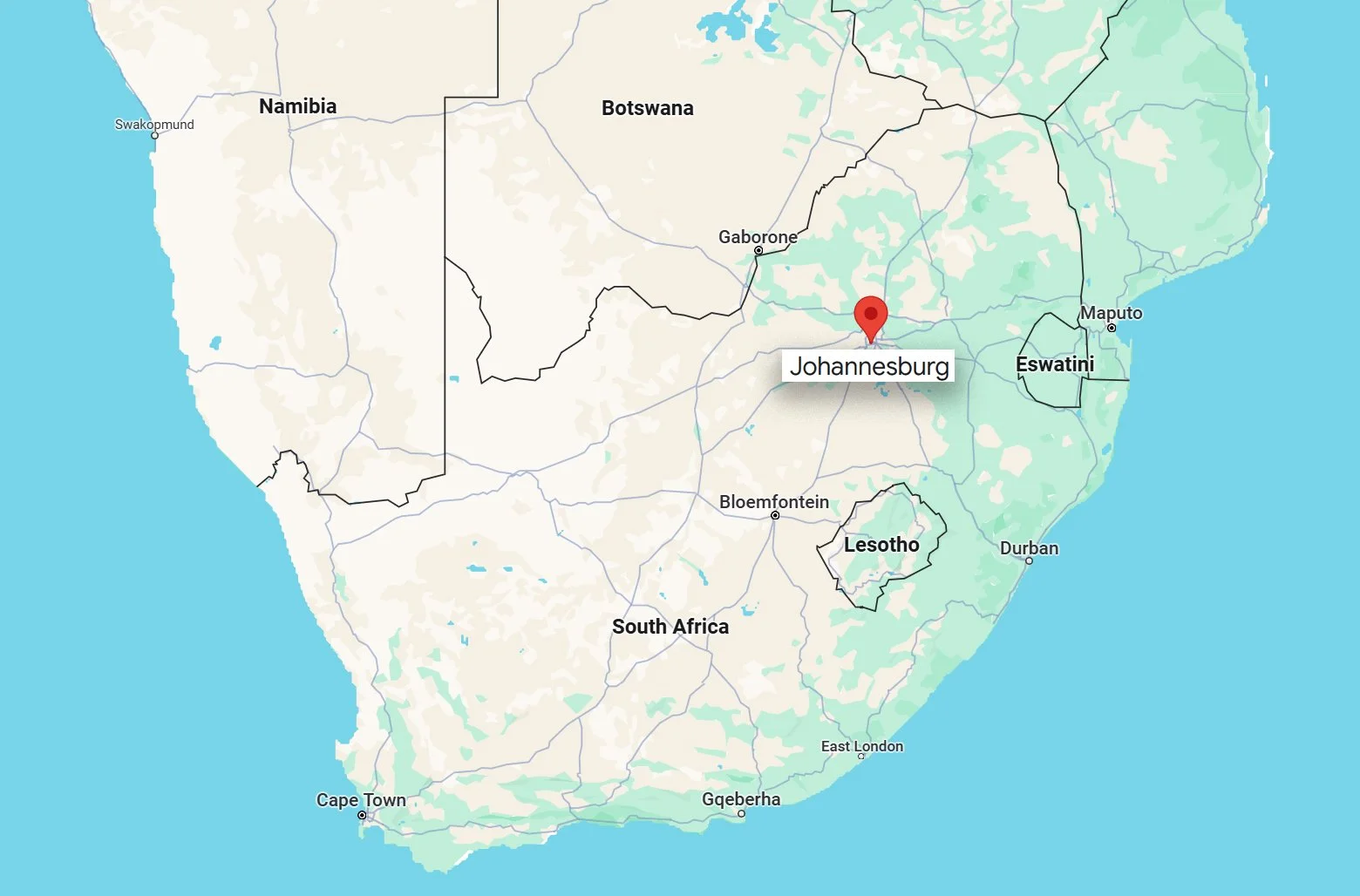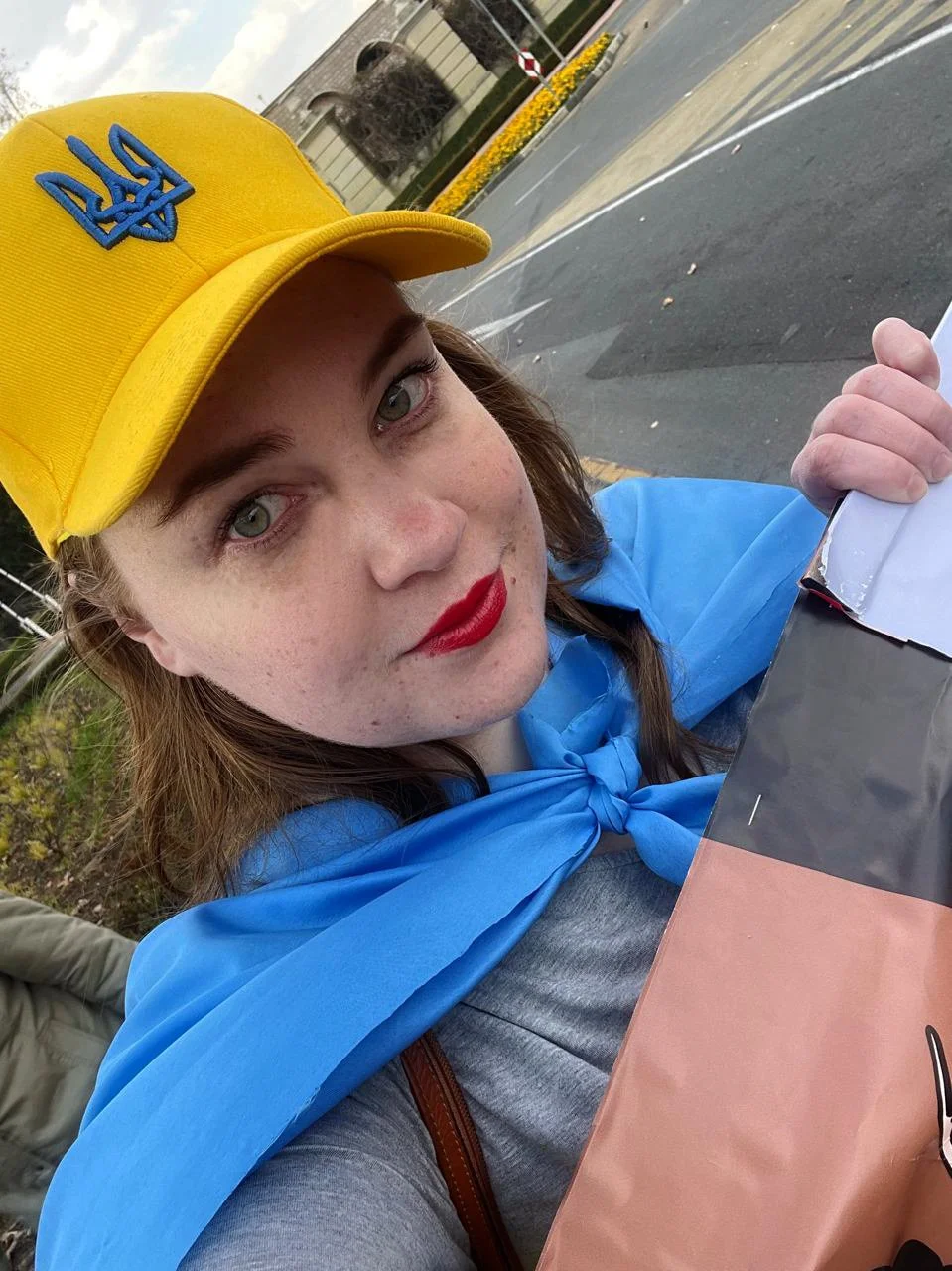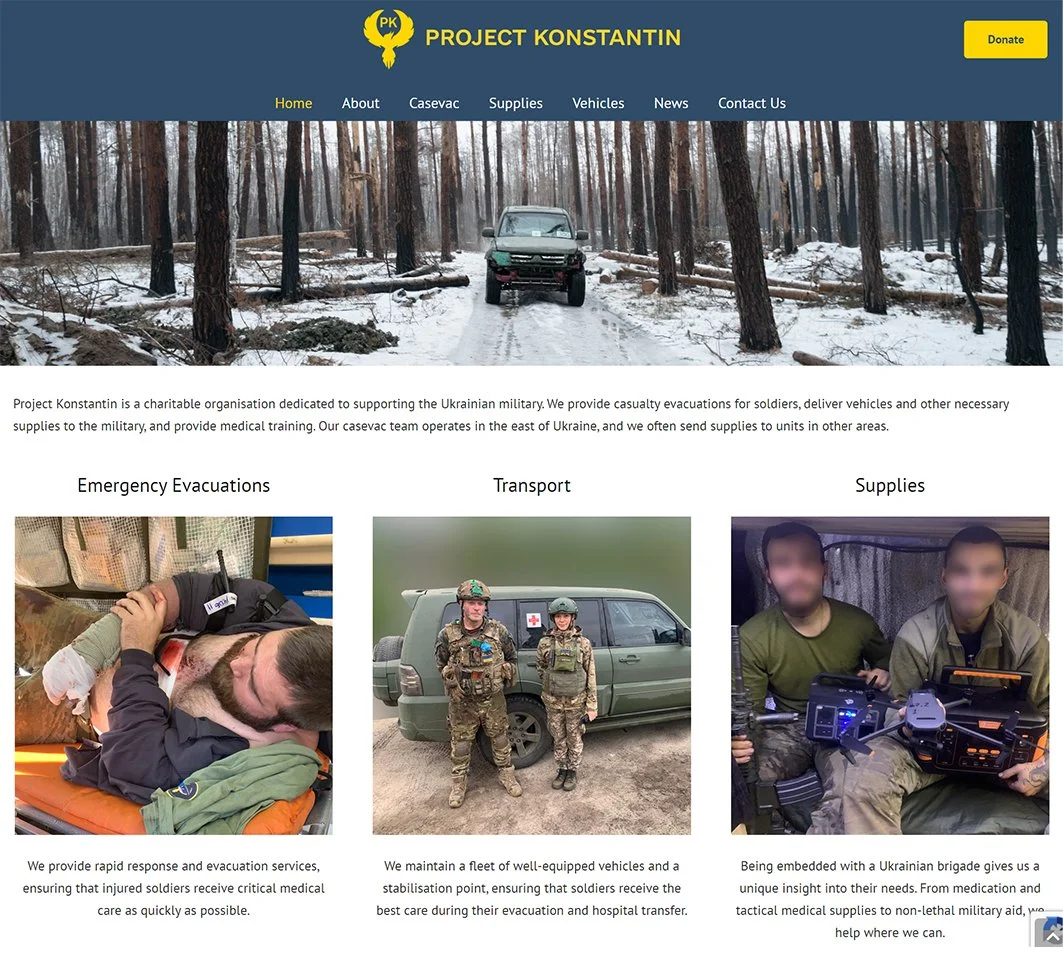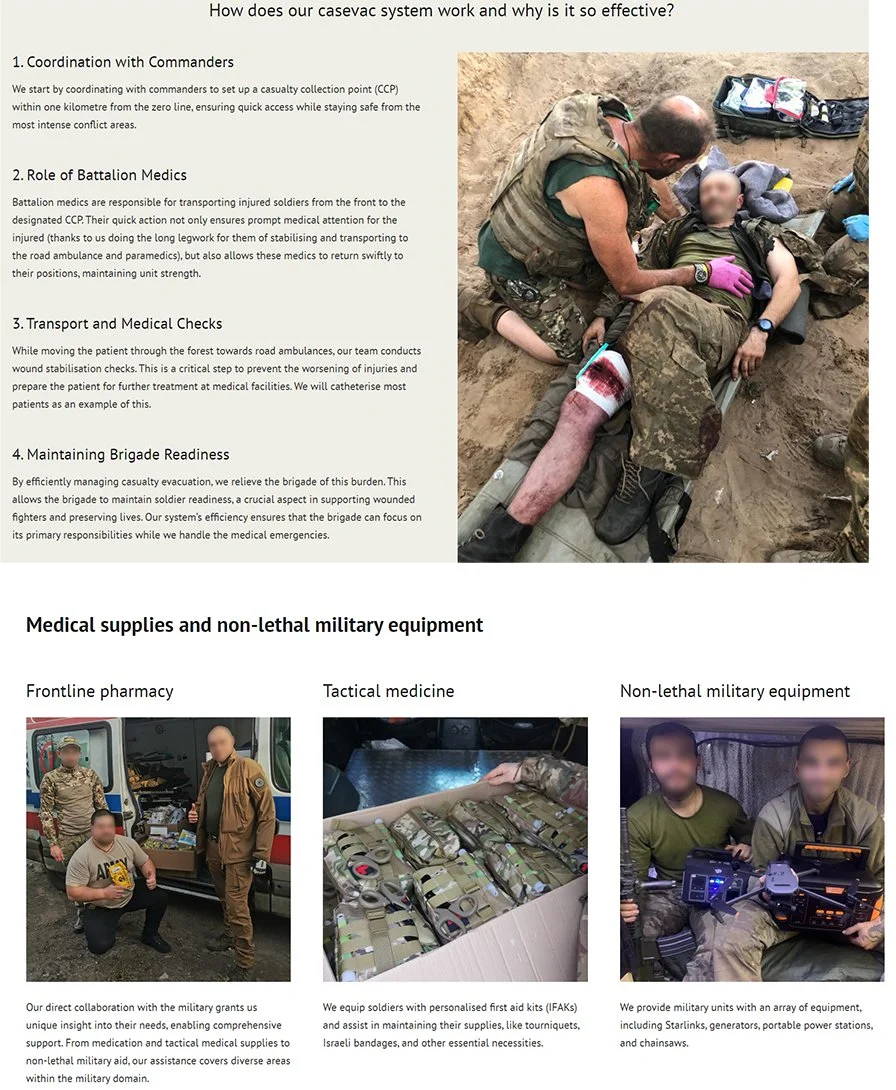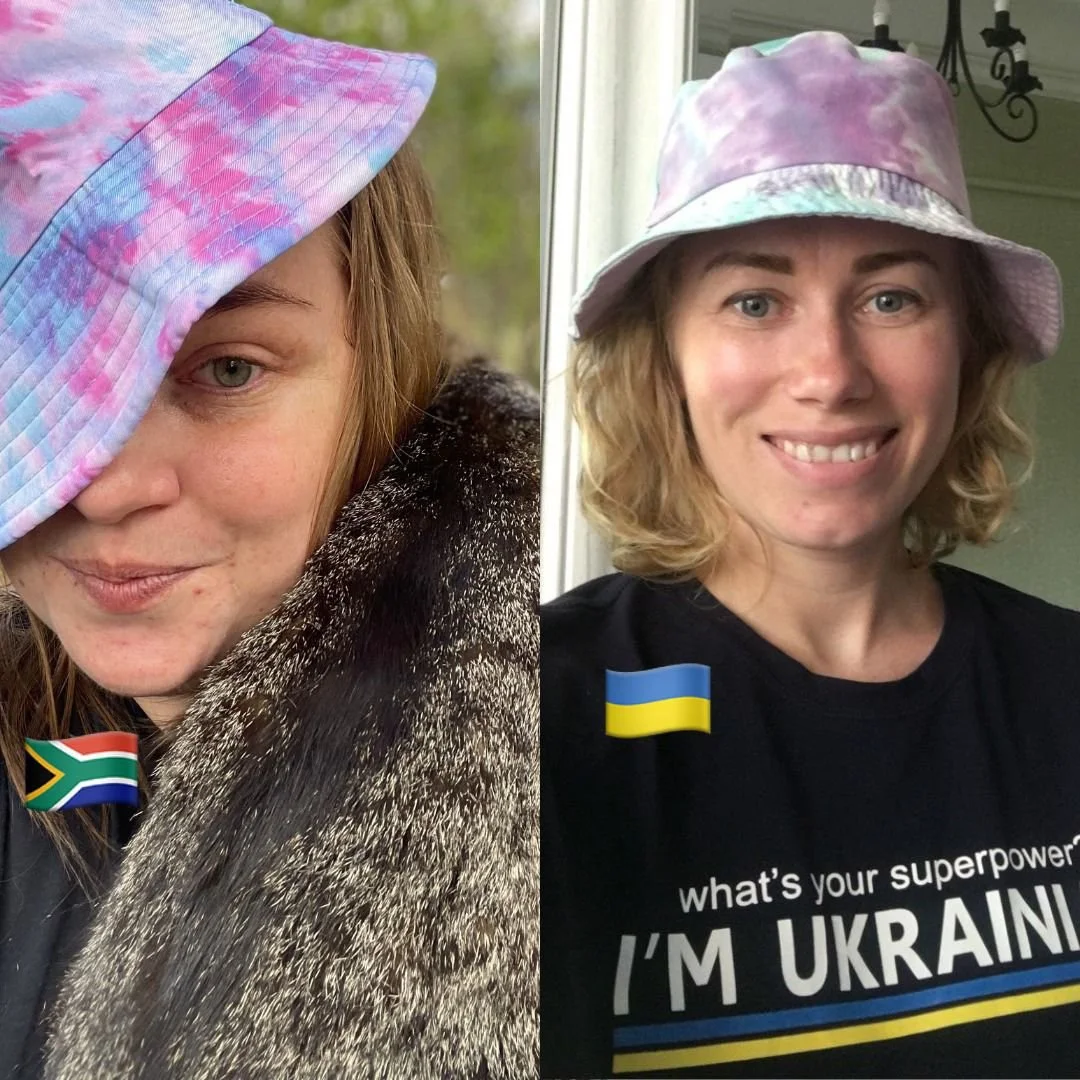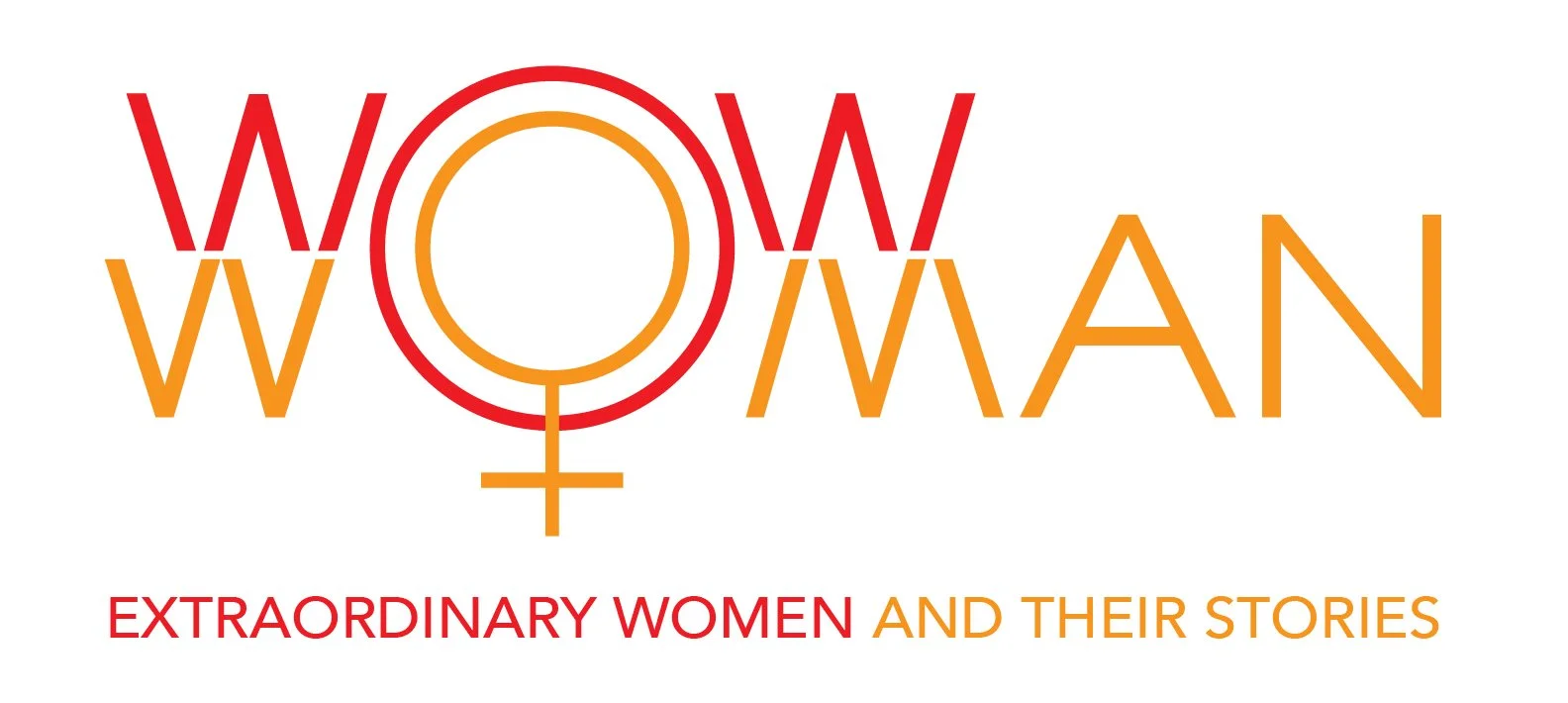THIS INSIDE UKRAINian Heart STORY IS FROM Johannesburg, South Africa.
* All images and answers in the feature were provided by the WOW Woman, unless otherwise specified.
“I was the only person who showed up to the protest that day”, said Ms. Jana Fourie, pointing to a photo where she is standing on the street in Johannesburg, draped in Ukrainian flag. Ms. Fourie, a South African national, supports Ukraine and denounces russian brutalities against Ukrainians with her daily work activities and activism. Jana works for a Ukraine-based initiative, Project Konstantin, which helps with evacuating wounded Ukrainian military members from the frontline. Sitting in Johannesburg, Ms. Fourie is helping Ukraine’s resistance effort in its fight against russian aggression and helps rescue and save Ukrainian heroes.
I wanted to understand more about Jana, what drove her to come out and be a solo protester, and perhaps figure out ways to clone her. I firmly believe that if every foreigner understood Ukraine and Ukrainian people the way Jana does, global support and backing would make us bulletproof.
The warm words of introduction about Ms. Fourie were provided by our Ukrainian WOW Woman in South Africa, Ms. Olga Kononenko:
“Let me tell you about Jana Fourie, an extraordinary woman hailing from South Africa. Jana embodies a distinct set of values, marked by an unwavering commitment to confronting atrocities and championing justice. The poignant words of the late Archbishop Desmond Tutu, "If you are neutral in situations of injustice, you have chosen the side of the oppressor," accurately capture Jana’s dedication to effecting meaningful change.
Jana is a fervent supporter of multiple initiatives aiding Ukraine in its struggle against russia. In her professional capacity, she serves as the Communications Director at Project Konstantin and collaborates extensively with the Ukrainian Association of South Africa. Jana is an absolute powerhouse of a woman; she is an exceptional communicator, a passionate activist, and a person with an all around beautiful soul.” - Olga Kononenko, Cape Town, South Africa.
Heartbreaking Update about the founder of Project Konstantin
Talented multitasker, Ukraine Supporter, Johannesburg, South Africa
1. Name.
Jana Fourie.
2. Where were you born and where do you live now?
I was born in Pretoria and now live in Johannesburg.
3. What did you study and what is your profession?
I had two stints at university, but didn't finish either of them. I studied Graphic Design and Communication and then Strategic Brand Communications. Both times, my epilepsy got in the way of completing my studies.
I'm a bit of a "utility player" as one of my former employers named me. Another employer called me the company's Swiss army knife because I have a diverse skill set and don’t fit into just one box. I was a graphic designer, copywriter, digital marketer, marketing strategist, and SEO expert. I also dabbled in web design.
After quitting "agency life", also due to epilepsy, I added even more tools to my Swiss army knife: I now not only focus on the above, but I'm also a forensic interpreter between English and Afrikaans, as well as an English and Afrikaans tutor.
4. What is your connection to Ukraine?
Before the full-scale invasion I had no personal connection to Ukraine. I remember feeling shocked at the lack of response from the international community after russia's annexation of Crimea (and yes, russia is written with a lower case “r” on purpose).
I remember asking my mom to explain why russia thinks it has a claim to Ukraine — she couldn't provide me with a reason, only shaking her head and saying something along the lines of "I've never understood russians". When the full scale invasion started, I was once again shocked that a country could do this in the 21st century.
And yet it shouldn't have been such a shock. A year before the full-scale invasion I started learning russian (I'd always been a lover of languages). I knew that the best way to improve one's language skills is through immersion, so armed with a total of four hours of russian lessons I signed up to a russian dating site — not for any romantic reason, only because it was an easy way to connect. I made friends — or I considered them friends at the time — with two russians. Let's call them Ivan and Igor (I know, I'm very creative). Ivan was part of putin's party and his grandfather was some or other statesman or mayor under stalin. But I remember him telling me that Ukraine belonged to russia and that the russian language was oppressed in Ukraine (my gut told me not to believe him). Igor had cousins living in Ukraine, I told him what Ivan had said and he vehemently disagreed. When russia invaded Ukraine on February 24, 2022, I asked them both if their country had just invaded a sovereign nation. Ivan gloated, telling me that everything he once said was correct and Ukraine will be russian again. Igor told me he's furious and that putin had just ruined russia. I cut contact with them both and a week later began my Ukrainian lessons. My main reason at the time was to support a Ukrainian tutor, someone who taught their native language from inside Ukraine. I wanted to help and learn from an actual person who loved and cherished their native language.
It didn't take me long to fall in love with the Ukrainian language. I also felt connected to it on a personal level, noticing similarities between the constant battle Ukrainians fought to keep their language alive and the battle Afrikaans speakers fought to have our language recognised and alive. The similarity of both languages being seen as a "peasant language" struck me. And as a South African born after 1994, seeing the oppression of one culture by another infuriated me. We have a public holiday here in South Africa called Heritage Day — it's a day where we celebrate our country's diversity. I could not — and still can't — understand why russia would want to wipe out something we South Africans view as a strength.
Before the full-scale invasion, my life was pretty normal. I went to work and after work I read, watched series of movies on Netflix or went out with friends.
In a sense, not that much changed after February 24, 2022 (russia’s full-scale invasion) and yet everything changed. I still worked, but now my work included being an activist and volunteer for Ukraine with the Ukrainian Association of South Africa (UAZA) as well as being a volunteer and later co-director of Project Konstantin, an organisation that helps the Ukrainian military on the frontline.
Movies and series turned into seminars, lectures, and documentaries. My fiction books, biographies, and self-help books turned into history books or books on current events. I began attending UAZA events and protests.
6. What are some concrete actions (big or small) you’ve done and continue doing to help Ukraine and Ukrainian people?
Playing an active role in the Ukrainian Association of South Africa is something I'm proud of.
I don't just share posts about Ukraine on social media, but do my part to be an "active citizen". For example, in 2023 we had a big campaign to make people aware of the St. Petersburg Ballet Company (SPBC) that came to tour South Africa. My Polish friend and I conducted an extensive research to prove that SPBC was, in fact, the touring company (they went to a great deal of effort to hide that fact) and that they had direct ties to the russian military. We were unable to stop the event from taking place, but with the help of UAZA we had peaceful protests at both the venue in Cape Town (Artscape Theatre) and the venue in Johannesburg (Montecasino). We also made local news. I also attend every UAZA protest held in Johannesburg and Pretoria, as well as help with social media.
What are your strengths and superpowers?
- My ability to persevere despite challenges is definitely a big superpower — a skill I've no doubt sharpened thanks to my medical condition and the setbacks it's brought in my career.
- Being an extrovert has worked in my favour — it makes it easy to talk to strangers at events or to go on YouTube streams and talk about our work.
- This may be funny to count as a strength, but my ADHD has helped me — my ability to go into "hyper focus" is really a superpower.
- My creativity is also one of my superpowers — that and my language skills. Both of those are honed skills, skills I've focused on in my marketing career.
*Above, Jana is pictured at the protest against russia’s war in Ukraine in Johannesburg, for which she was a solo attendee.
For Project Konstantin, I help with fundraising and the sourcing of supplies outside of Ukraine, as well as media relations and PR. I also edit our videos and run the social media accounts alongside one of our other co-directors, Halyna, who lives in Odesa.
My income isn't big and given the weakness of the South African Rand, the exchange rate makes any financial contribution I'd be able to afford almost laughable, so I "donate" to use my time and skills to helping Ukraine instead of my money.
I do my best to not only focus on helping Project Konstantin and UAZA, but also other Ukrainians I know with their fundraising efforts or search for supplies for their friends on the front. So I also often contact friends and ask them if they need any supplies that we at Project Konstantin would be able to help with.
7. What are things you do just for you? Is it possible to stay sane while working with the war-atrocities-human suffering as part of your job description? What are some things that help you to not lose yourself?
This is a difficult question. I was once asked about the last time I did anything for myself. I didn’t have an answer but I did book a facial and turned it into a monthly ritual.
My dog and cat also provide some laughter, they are two complete goofballs who have random bursts of energy where they chase each other around the house. They provide some much-needed comedic relief. Phone calls with friends or meeting up with them and seeing family also helps to keep me grounded.
8. Do you feel the war and working on this effort (Project Konstantin) changed you? How?
The war definitely changed me, both through my work with Project Konstantin and Ukrainian Association of South Africa. I realised that I'm much more confident to stand up for what I believe in than I ever imagined — and I always believed I was already strong in that regard! I've also learned when it's worth it to argue with someone and when it's a lost cause. I also found the strength through my online community, realising that we don't have to agree on everything, but that our differences are secondary to our main goal: supporting Ukraine.
I find inspiration in the strength of Ukrainians. I guess in a sense it's part of the reason why I allow myself so little time to rest, because Ukrainians can't just decide they're "taking a break" from this war for their mental health, so how can I?
Since the start of the war, has anything surprised you about humanity? What have been some of your epiphanies?
Regarding my ideas on humanity, I've realised that it's very difficult to believe that there are good people in a nation when their country is committing genocide in another country. It sometimes makes me question my beliefs about myself — can I call myself a good person if I believe [almost] everyone in a country is bad? It's a level of introspection I'm not ready to do.
Another way this war has changed my view of humanity is best summarised in Mstyslav Chernov quote of a doctor in the film 20 Days in Mariupol: "War is like an x-ray. It shows what’s on the inside. Good people become better. Bad people become worse."
The war has also changed my view on apolitical citizens of the world. There is a quote by the late archbishop Desmond Tutu, "If you are neutral in situations of injustice, you have chosen the side of the oppressor". I guess to an extent it is "easier" for me to deal with someone who is pro-russia, because I know what their morals are. But people (and countries) who believe that by staying neutral they are not complicit in russia's invasion of Ukraine, are just as guilty.
9. What do you want the world to know about Ukrainians at this moment in time? About Ukrainian women?
Ukrainians are strong, they care about their country and its people. They are proud of their heritage and have managed to keep it alive despite several attempts, if not one long, continuous attempt by russia, to destroy it.
Regarding Ukrainian women, they remind me of a resistance song in South Africa that translates as "You strike a woman, you strike a rock!". All the Ukrainian women I know are strong and fierce, and no matter where in the world they are, they contribute to Ukraine's efforts to defeat the aggressor and advocate for Ukrainian sovereignty. From the Ukrainian women at UAZA who put in countless work hours, to women who are refugees in Poland who weave camouflage nets for Ukrainian defenders and send care packages, to the women inside Ukraine who fundraise for the military and send them food and other supplies, or the women who help with humanitarian work. And of course the women serving in the military! Ukrainian women are playing an active role in helping their country and their people.
What and how do you think South Africans can understand Ukrainians better? Through what lens? There seems to be a real russian propaganda reach into SA, how would you counteract it? What are your strategies when talking to locals who don't understand the depth of russia's atrocities in Ukraine?
I'd like to split this into: a) how South Africans can better understand Ukrainians, b) counteracting russian propaganda, and c) explaining russian atrocities in Ukraine.
a. How South Africans can better understand Ukrainians? As humans we find it easier to relate to someone if we can draw from our own experiences, be that our personal experience or that of our ancestors. I try to draw parallels between Ukraine and South Africa. As a nation, South Africans have experienced the subjugation of oppressors, but we also know that to free oneself from oppression, you have to fight.
b. Counteracting russian propaganda. The first step to counteracting russian propaganda is to understand what propaganda is most prominent in South Africa. The main points of mis-information I’ve encountered from local passers-by at protests are:
Propaganda: russia helped liberate South Africa from apartheid, therefore they are an ally. The truth: It's true that the USSR was a friend to South Africa in the fight against apartheid. To quote Dr Olexiy Haran “It is often forgotten, however, that it was Ukraine (in the form of Ukrainian Soviet Socialist Republic), a founding member of the UN, which joined the UN Special Committee Against Apartheid, and it was Ukraine that co-authored many of the significant international resolutions, including the 1966 resolution to mark 21 March, the anniversary of the infamous Sharpeville massacre, as the International Day for the Elimination of Racial Discrimination.”
Propaganda: We can't help Ukraine because russia will start a nuclear war. The truth: Whenever someone points this out, I point out the numerous "red lines" russia has drawn that have never amounted to anything. When it comes to people saying that putin will "escalate" if we help Ukraine, I ask them "how exactly will he escalate it? russia is already committing genocide in Ukraine.”
Propaganda: russia is fighting NATO / this is a proxy war. The truth: This reply elicits a chuckle from me. I usually debunk this myth by saying that if russia was fighting NATO, russia would have already been destroyed. Secondly, I chastise (or perhaps that is too strong a word) people for thinking that Ukrainians have no personal agency.
c. Explaining russian atrocities in Ukraine. I believe that, as empathetic as we would like to believe we are as humans, we can only understand situations we have experienced ourselves. When I discuss russian atrocities in Ukraine, I focus on ones that South Africans would be able to relate to: In South Africa, we are very lucky not to live with the fear of an aggressive neighboring country invading us and as a society we've also never had to worry about bombs being dropped from the sky (I don't even think we have bomb shelters). I thus try to make realities of russia's invasion of Ukraine "relatable" (if I can use that word) to South Africans.
I also focus on the humanity: In South Africa, gender-based violence is a big problem. In fact, according to an article by UN Women, violence against women and girls in South Africa is among the highest in the world. This topic is part of our national conversation on an almost daily basis and one that every South African is familiar with. At protests or when I talk to strangers about russian atrocities in Ukraine, I talk about the known reports of russian forces raping women and children in formerly occupied territories (Kherson, Bucha, Izyum, etc.).
I also focus on the deportation of Ukrainian children. UAZA recently hosted Dr Elvis Fokala from the Centre for Human Rights and he said something that summarizes why focusing on children's rights is so important: "Everyone needs to be concerned when it comes to a child. And there’s just simple one reason about that: everyone has an experience of childhood. There is no one who became an adult without being a child." (His full talk is available here).
10. Who are your WOW Women who inspire you?
My mom is at the top of my list. She is just... wow, I really don't have words to explain how amazing my mom is! She is strong, intelligent and supportive. In fact, since childhood, I’ve been lucky to have many inspiring women as role models: my mom, grandmothers, aunts, and older cousins. They have all contributed to the woman I am today and continue to be the source of strength and inspiration.
My co-director at Project Konstantin is a WOW Woman. Halyna Zhuk is in Odesa and we talk every day! She not only works with me at Project Konstantin, but also volunteers at another NGO, and is actively involved at her church. She spends her Friday afternoons in one of the women’s prisons, providing counselling to inmates. She studied engineering and worked as an engineer, but when the full-scale invasion broke out, she decided to go study psychology, because she knows that her fellow Ukrainians will need help to recover. Despite being bombarded by russian missiles and drones on an almost daily basis, she’s extremely positive. Whenever I feel down, she gives me a healthy dose of realism - something along the lines of “we either survive the night or it’s no longer our problem”. Her strength is remarkable and I’m left in awe of everything she accomplishes.
Olga Kononenko, who was also featured on WOW Woman, is one of my best friends and an inspiration. Her creativity and tenacity are something I admire, not to mention all the work she puts in!
There's also Lesya Karpenko from UAZA. That woman is fierce, fearless and can organise like no one else! Last year, during a protest I watched her stand her ground while three burly bouncers tried to intimidate her during a protest. Lesya calmly pulled out R2K’s Activist Guide on the Right to Protest and showed them why we were within our rights to protest there. (Note: utlimately, we did end up moving to a different location because the bouncers were quite annoying).
11. What is a place or activity that makes you feel happiest?
I’m happy when I’m surrounded by my friends and family. I'm a true extrovert and like a weird social vampire I recharge my batteries when I’m around loved ones. I also enjoy spending time on a farm — reading and walking with the dogs in nature.
12. What will be the first thing you’ll do when Ukraine wins? What are your dreams for yourself and your family?
I'll probably laugh and cry at the same time and phone my mom. Then phone Olya Kononenko, Halyna (from Project Konstantin) and Pete (from Project Konstantin) and laugh and cry some more. Then, I'll go buy some wine to celebrate before phoning my grandmother and telling her. It will probably happen in that exact order too!
Then, once the celebrations are over it will be back to work, because we will then need to focus on rebuilding Ukraine.
13. Where can others find you/your work? (links to website, blog, etc).
I'm on Twitter as @jaans_kepaans.
And on Instagram as @jaans_kepaans.
Project Konstantin's links are available here.


